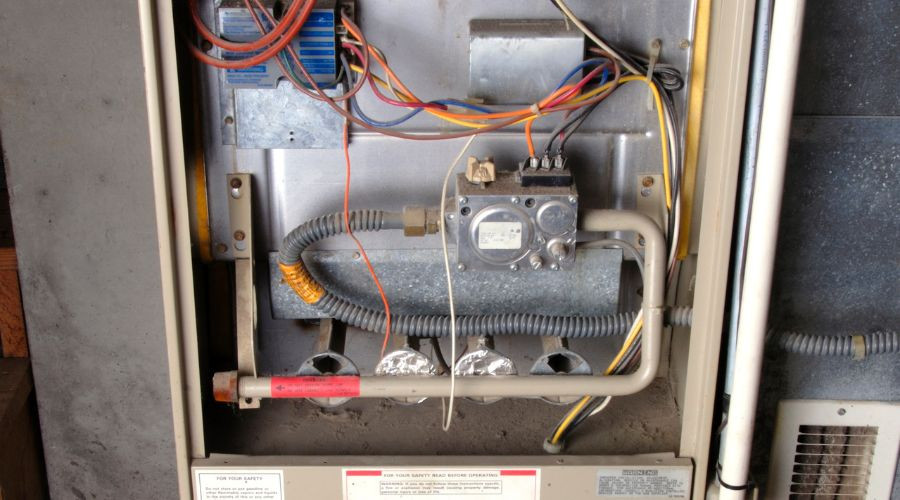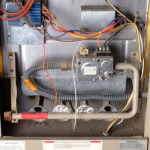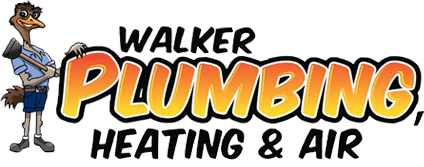Common Heating Hazards and How to Avoid Them
Heaters and furnaces are necessary in homes to protect people during winter. However, despite modern safety developments, heaters and furnaces can pose threats to the safety of the home and family. Homeowners may be in a dangerous situation without quickly recognizing the signs and the right response. Here are three common dangers heaters pose and how to respond to and prevent them.
Carbon Monoxide Leaks
 Carbon monoxide is a poisonous gas that is imperceptible to humans. The gas is invisible and has no odor, so it is impossible to detect without carbon monoxide detectors. When fossil fuels combust, one of the products is always carbon monoxide. However, the further a furnace falls into disrepair, the more carbon monoxide will be produced. At a certain point, the level of carbon monoxide that leaks back into the home can become life-threatening.
Carbon monoxide is a poisonous gas that is imperceptible to humans. The gas is invisible and has no odor, so it is impossible to detect without carbon monoxide detectors. When fossil fuels combust, one of the products is always carbon monoxide. However, the further a furnace falls into disrepair, the more carbon monoxide will be produced. At a certain point, the level of carbon monoxide that leaks back into the home can become life-threatening. Preventing carbon monoxide leaks in the home can be done in two ways. First, heat pumps don’t use fossil fuels, so they don’t produce carbon monoxide. When upgrading the heater, looking into heat pump options can make the home safer. Secondly, remembering furnace maintenance can help prevent carbon monoxide formation. For total protection, homeowners with flame-producing appliances should have carbon monoxide detectors placed around the home for early warning so they can call for repairs as soon as the alarms go off.
Mold Growth
 Mold is a common pollutant in homes because it is abundant outdoors. It can be a serious indoor problem in homes with malfunctioning HVAC systems.
Mold is a common pollutant in homes because it is abundant outdoors. It can be a serious indoor problem in homes with malfunctioning HVAC systems.- Musty odors
- Fuzzy dark growth near windows and in bathrooms
- Chronic low-grade respiratory problems
If mold grows in the home, it will likely spread to the furnace or heater, especially if malfunctioning. Mold growth in ductwork greatly compounds the problem.
Heaters and furnaces should remove moisture from the air to keep it under control during the winter. Excess moisture fuels mold growth, so mold can proliferate when the heater fails to dry the air in the home. By scheduling routine heater maintenance and replacing air filters, homeowners can keep mold growth out of their heaters and under control in the home.
Overheating Furnaces
Overheating furnaces is one of the most serious acute problems a homeowner may encounter. An overheating furnace can start fires in the home, damage the heater, and increase the likelihood of carbon monoxide poisoning. Some of the signs of an overheating furnace are:
- Tripped safety devices
- Burnt odors
- Hot spots on the furnace
- Carbon monoxide alarms
- Humming noises
When these signs are noticed, homeowners should shut the heater off and call in an HVAC emergency professional.
Preventing overheating furnaces is as easy as preventing the other hazards mentioned above. First, homeowners should change air filters every three months to ensure easy airflow over the heater's burner. Second, routine heater maintenance should be scheduled every fall to address heater deficiencies and ensure the heater is ready for the season.
About Walker Plumbing, Heating & Air
Walker Plumbing, Heating & Air offers emergency and same-day service for most other calls. With over 20 years of experience, they install and repair heaters using the latest technology. Call today for heating services in St. George, UT.







